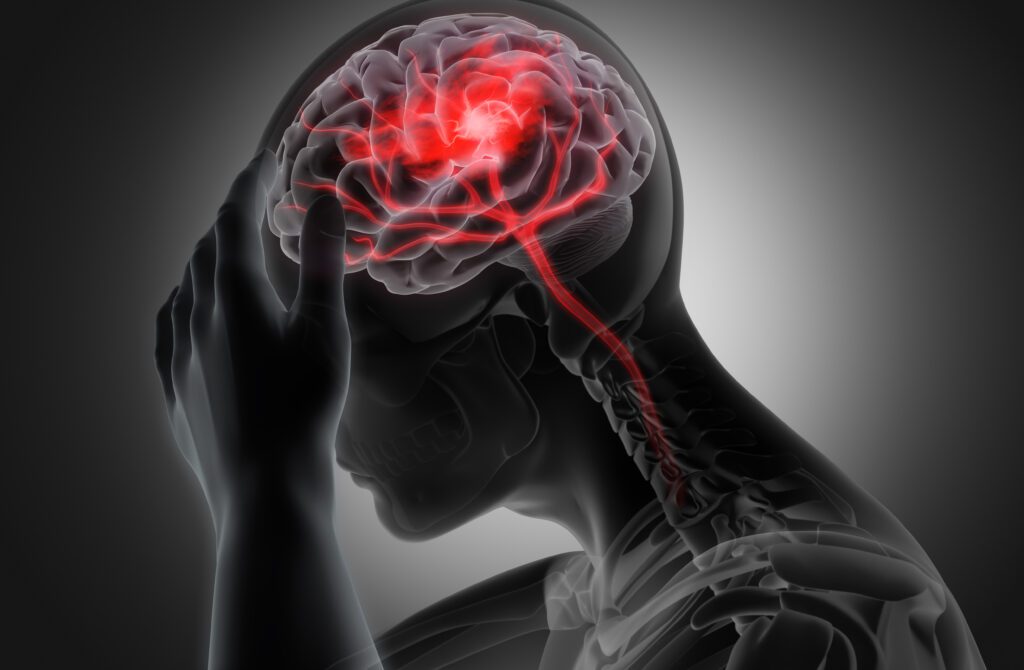One of the most common causes of disability and death in adults — and the leading cause of disability and death in children — is Traumatic Brain Injury, or TBI. A TBI can be caused by everything from a simple blow to the head to a penetrating injury to the brain. Approximately 2.5 million Americans suffer a TBI every year, with 80,000 causing permanent disability and 50,000 resulting in death. The effects of a TBI can last well beyond the initial injury, so it’s crucial to know the facts so you can protect yourself and your loved ones. Take our quiz to stay ahead of TBIs.
- A TBI can be caused by which of the following scenarios?
- A bump, blow, or jolt to the head
- A hit to the body that causes the head and brain to move quickly back and forth
- Both A and B
- Neither A nor B
- Which of the following are among the leading causes of a TBI?
- Falls
- Motor vehicle crashes
- Being hit by or colliding with an object, such as in contact sports
- Assaults
- All of the above
- True or false? TBIs are labeled as mild, moderate, and severe; however, the terms are used to describe the effects of the injury on brain function, not the degree of seriousness. A mild injury to the brain is still a serious injury that requires prompt attention and an accurate diagnosis.
- True or false? A TBI can cause the brain to bounce around or twist in the skull, stretch and damage brain cells, and/or cause changes in the brain’s chemicals; these can all lead to symptoms that can affect how a person thinks, learns, feels, acts, and sleeps.
- Which of the following are symptoms of a moderate TBI, also called a concussion?
- Physical symptoms, such as sensitivity to light or noise, dizziness, balance problems, lethargy, headaches, nausea or vomiting, and vision problems
- Cognitive symptoms, such as attention or concentration problems, feeling foggy or groggy, short- and/or long-term memory, and trouble thinking clearly
- Social or emotional symptoms, such as anxiety or nervousness, irritability or a quickness to anger, feeling more emotional, and sadness
- Problems with sleep, such as sleeping less or more than usual or trouble falling asleep
- All of the above
- True or false? Symptoms of mild TBI and concussion are different for each person, and symptoms may appear right away, while others may not appear for hours or days after the injury.
- Which of the following is NOT a consequence of sustaining repeated mild TBIs?
- Your recovery time becomes longer.
- Your brain becomes accustomed to the effects and is unaffected.
- Symptoms become more severe.
- Long-term physical and cognitive problems, such as issues with concentration, a loss of memory, headache, and trouble keeping one’s balance.
- Moderate to severe TBIs can have which of the following symptoms?
- Physical symptoms like loss of consciousness from several minutes to hours, convulsions or seizures, persistent headache or headache that worsens, repeated vomiting or nausea, dilation of one or both pupils of the eyes, and more.
- Cognitive or mental symptoms like profound confusion, agitation, combativeness or other unusual behavior, slurred speech, coma and other disorders of consciousness.
- Both A and B
- Neither A nor B
- Infants and young children with brain injuries might not be able to communicate headaches, sensory problems, confusion, and similar symptoms. Which of the following are symptoms of TBIs in infants and young children?
- Change in eating or nursing habits, inability to pay attention, and/or in sleep habits.
- Unusual or easy irritability, and/or persistent crying and inability to be consoled.
- Seizures
- Drowsiness, loss of interest, and/or sad or depressed mood
- All of the above
- If you suspect someone has suffered a TBI, which of the following should you do?
- Wait and see if the symptoms get better.
- Apply ice to the injured area.
- Seek medical attention immediately.
- Let the person rest.
compiled by ERIKA ALDRICH / Information from The Mayo Clinic, John Hopkins Medicine, The National Institutes of Health, the CDC, and The Brain Trauma Foundation.
ANSWERS:
- C. Both A and B
- E. All of the above
- True
- True
- E. All of the above
- True
- B. The brain does NOT become accustomed to multiple mild TBIs.
- C. Both A and B
- E. All of the above.
- C. Seek medical attention immediately.
